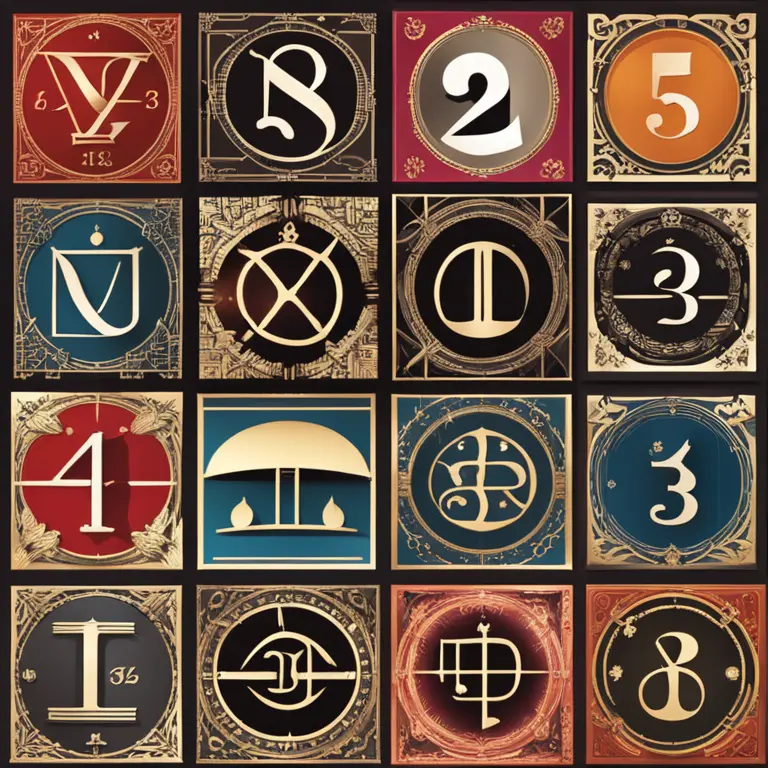
The Numerological Framework: Is it a Science?
Delving into numerology’s claims of being a structured and analytical doctrine akin to science, this article examines its methods and evidence.
article by Sofia Ferguson
Nature of Numerology
Numerology, often enveloped in an aura of mystique, posits that numbers undergird the universe's fabric in a manner that influences human affairs and natural phenomena. With roots in ancient civilizations, numerology endeavors to quantify an individual's character and fate through mathematical principles. As a concept straddling the line between spiritual intuition and empirical study, it intrigues with its pursuit of universal truths. The discipline systematizes life's nuances into numeric representations, revealing patterns that suggest a calculable cosmic order.

Scientific Underpinnings?
The proposition that numerology is a science rests on its structured approach to the cosmic significance of numbers. Proponents draw parallels with astronomy, highlighting systematic observation and interpretation of numeric symbolism. In the spirit of scientific inquiry, numerologists compile comprehensive data from life events and birth charts, seeking replicable patterns akin to experimental repeatability. While skeptics question the empirical rigor, aficionados assert that numerology's predictive capabilities echo the deductive reasoning of conventional science.

Analytical Techniques
Numerologists employ an array of methodologies which mirror scientific analytical techniques. The life path number, akin to a foundational formula, is derived from a person's birthdate and purports to offer insights into one's destiny and inherent traits. Compatibility between individuals is calculated using numeric algorithms, suggesting a form of statistical matching used within psychological research. Is there, concealed within these procedures, a form of logic that transcends mystical belief and enters the realm of testable hypothesis?

Evidence and Validity
In a world increasingly ruled by data and analytics, numerology's credibility hinges upon its evidence base. Proponents reference anecdotal correlations, patterns in historical data, and testimonies of personal transformation through numeric guidance. Arguably, numerology requires its own "peer-review" process to sift anecdotes from substantial evidence and establish its validity within a modern scientific context. The barrier stands tall; however, numerology seeks to rise to the challenge, aspiring for recognition beyond the esoteric.
Criticism and Counterpoints
Detractors of numerology underscore the lack of experimental rigor, controlled studies, and the confirmation bias shadowing its practice. They argue that without the falsifiability criterion upheld by modern science, numerology's theories remain in the realm of pseudoscience. Yet, advocates counter that unconventional practices often face resistance before gaining acceptance within scientific paradigms. They call for an open-minded evaluation of numerology's potential as a scientific discipline, pointing out historical instances where today's science was yesterday's heresy.
Future of Numerological Studies
As we advance into 2024 and beyond, numerology's pursuit of scientific acknowledgment may hinge on integrating more rigorous methodologies and technological advancements in data analysis. AI and machine learning might lend themselves to complex pattern recognition within large numerological data sets, possibly unveiling insights that could shift perceptions. Whether numerology will ever sit comfortably at the science table is an ongoing debate, yet it continues to evolve, adapt, and seek dialogue with the skeptical scientific community.
Published: 1/31/2024
Modified: 1/31/2024
More predictions
Come back here soon to learn more about yourself and your future


Zodiac Love Match: Your Guide to Astrological Harmony
Discover the cosmic dynamics of love with our Zodiac Compatibility Horoscope—your guide to finding harmony in relationships through the stars.


Zodiac Signs: Pathways to Love Compatibility
Discover how zodiac signs influence romantic compatibility, and how astrology can guide you to your perfect match.